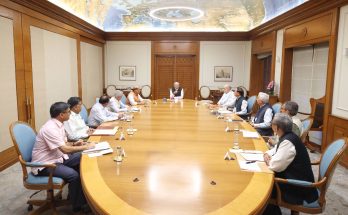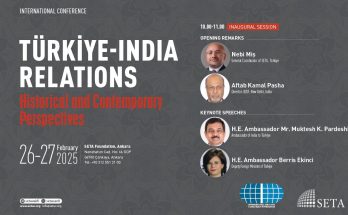Days after Prime Minister Narendra Modi visited Kabul and underscored India’s determination to stand by Afghanistan during the country’s challenging transition period, terrorists tried to target the Indian consulate in Mazar-i-Sharif, indicating a bloody power play in months to come.
There were explosions and gunfire just a few meters away from India’s consulate in Mazar-i-Sharif late on the night of January 3. Four heavily-armed terrorists made an attempt to storm the building.
A spokesman for Atta Mohammad Noor, the Governor of Balkh province, Muneer Farhad said two gunmen had been killed, while two more were still exchanging fire with security forces. “We are under fire,” Brajabashi Sarkar, India’s Consul General in Mazar-i-Sharif said. Residents in the vicinity claimed they had heard two loud explosions followed by gunfire.
The attack came even as Indian security forces continued to fight Jaish-e-Muhammad terrorists who struck at the Indian Air Force base in Pathankot, Punjab early on January 2. Mentioning a few details about the attack on the Indian consulate in Mazar-i-Sharif, Afghan security sources said the attackers retreated into a building owned by local Uzbek politician, Sayed Noorullah Sadat, which is rented out to a US government-funded aid programme. According to sources in of the Afghan Security forces, the building was surrounded by the security forces.
The target of the terror attack was clearly India, and the India-Afghanistan friendship, which was showcased during Mr Modi’s trip to Kabul on December 24-25, which saw the Indian leader inaugurate the India-built Afghan parliament and make a spirited statement about eternal bonds that tie the two friendly countries.
Earlier in the day, President Ashraf Ghani, Chief Executive Abdullah Abdullah, former President Hamid Karzai and National Security Advisor Hanif Atmar had cheered their team as it played India in the South Asia Football Federation cup, in a show of goodwill between the two countries.
Fortunately, there were no Indian casualties, as corroborated by Vikas Swarup, the spokesperson of India’s external affairs ministry.
The attack is the latest in a series of strikes on Indian diplomatic missions in Afghanistan since 2008. In May 2014, three suicide had targeted the Indian consulate in Herat, which coincided with Mr Modi’s swearing-in ceremony in New Delhi. The US and Afghanistan’s intelligence services blamed the Pakistan-based Lashkar-e-Taiba for the attack.
Author Profile
- India Writes Network (www.indiawrites.org) is an emerging think tank and a media-publishing company focused on international affairs & the India Story. Centre for Global India Insights is the research arm of India Writes Network. To subscribe to India and the World, write to editor@indiawrites.org. A venture of TGII Media Private Limited, a leading media, publishing and consultancy company, IWN has carved a niche for balanced and exhaustive reporting and analysis of international affairs. Eminent personalities, politicians, diplomats, authors, strategy gurus and news-makers have contributed to India Writes Network, as also “India and the World,” a magazine focused on global affairs.
Latest entries
 India and the WorldApril 23, 2025Kashmir terror: India hits back at Pakistan, highlights cross-border linkages
India and the WorldApril 23, 2025Kashmir terror: India hits back at Pakistan, highlights cross-border linkages India and the WorldApril 23, 2025The Century of America and India: Growing Together
India and the WorldApril 23, 2025The Century of America and India: Growing Together In ConversationApril 20, 2025India Can Contribute Largely to Development of Morocco’s Defence Industry: Ambassador
In ConversationApril 20, 2025India Can Contribute Largely to Development of Morocco’s Defence Industry: Ambassador India and the WorldApril 2, 2025Mapping Next Steps for BIMSTEC
India and the WorldApril 2, 2025Mapping Next Steps for BIMSTEC








